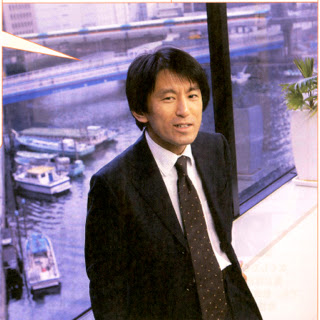Before their transition - suffering of Japanese business person (1-1-1)
Chapter 1: Managing the body
“After all, what is most important to us is, in most cases, something that we cannot see (but we can feel in our heart). Furthermore, anything really precious can often be obtained only through monotonous and tiresome activities.”
by Haruki Murakami(2008)
1-1.
What is triathletes’ motivation?
(1) Before their transition - suffering of Japanese business person
(1) Before their transition - suffering of Japanese business person
Why people
of today take up triathlon as a pastime in their busy life?
What are
their motives for becoming a triathlete and through what process have they decided
to be one?
 |
| the author(42) at KONA2013, finishing 9:35:35 |
In a survey of
European amateur triathletes conducted in the 1980’s, they were asked what they
had been doing before or at the time of their entry for the contest. The interviewees’ answers can be
summarized as follows:
(1) the majority
of them were enjoying high social standing with a large income, and (2) what was characteristic of male
athletes was that they were stable emotionally with high self-esteem.
Another
survey conducted in North America in the 2000’s revealed that the majority of
the race participants were middle-class professionals and managerial positions. They have achieved high-education
levels, have moderate to high occupational prestige positions and have
significant amounts of disposable income. But most of them complained of lack of exercise because they had
to work indoors all day long.
Furthermore, they were always under the pressure to abide by the
corporate ethics and regulations. In
either case, they needed to be liberated both in mind and body.
Then and there they met triathlon.
(Atkinson,M.“Triathlon, suffering and exciting significance” , 2008)
Then and there they met triathlon.
(Atkinson,M.“Triathlon, suffering and exciting significance” , 2008)
 |
| the author(32) before his triathlon. |
The present author interviewed several Japanese triathletes about how they had begun triathlon. A male school teacher in his 20s replied:
“As a teacher I think I must tell my students the importance of achieving one’s goal, and if I myself successfully complete the race, I’m sure what I preach in my classroom will sound more convincing.”
Another man,
who was in his 30s, answered:
What interests me is the age when they started triathlon. The majority of the interviewees became triathletes in their 30s and 40s, when they are in the prime of their working life. This is also the time when they began to worry about their overweight or about the lack of stamina, and eventually they start some exercise. At the same time, some of them begin to feel anxieties about their complicated human relations in their workplace.“Fight it out to the finish!” This has been ‘my style’ since I was a little boy. I re-appreciated what it really meant when I met triathlon in my 30s. Before I took up triathlon, I had devoted myself only to work, but I had always felt frustrated, because I knew this was not really how I should live.”
A woman in
her 30s, who had some problems with the interpersonal relationships at her office,
admitted that she was suffering from a stomach ulcer. A male employee just about the same age
with her spoke his thoughts as follows.
“I’m working for one of the top-ranking companies in JAPAN, but almost every night after work, I have to go to drinking places with my colleagues just out of social obligation, and there we grumble about our boss over glasses of beer. But the next morning we behave like a ‘model student’, pretending as if nothing had happened the night before. That’s an agony to me. I really want to lead a more ‘positive’ private time out of my office. Then and there, I came across triathlon. ”
 |
| the author(33) |
Under such
circumstances, some of them find it difficult to fulfill their expected duties,
eventually giving up their promotion.
Even if they are lucky enough to be promoted, they will have to be
prepared to accept their heavy responsibility as a mid-level manager. Referring to their difficult position,
a male employee in his 50s says with a sigh,
Because of these difficult circumstances, they are determined to strive for finding some ‘meaningful life-style’ of their own. This is where sports come in as a ‘savior’. Through sports they can have close ties with people sharing the same interest, and this is where triathlon has its role to play.“I’m reprimanded by my boss every now and again, and at the same time, I constantly get pressured by my staff members. Whatever effort I make, there’s no way-out!”
...to be continued

Thank you Masuyuki for sharing your thoughts about the reasons that lead people to triathlon, even if the cases you describe are pretty distressing...
ReplyDeleteThank you for your comment, Massimo.
DeleteIn a sence our society is a bit distressing, so we do triathlon to get back our body &soul, in some cases. In any way we enjoy it!
It's been 3 weeks from this post, I restart this week.